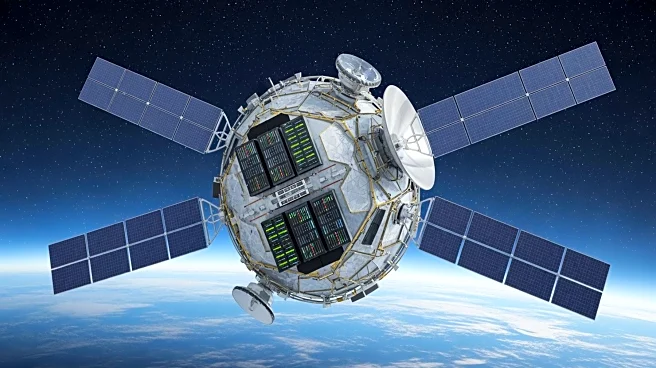What's Happening?
A study by Zhejiang University and Nanyang Technological University proposes the feasibility of building carbon-neutral data centers in space. The concept leverages abundant solar energy and the deep-space
environment for efficient power and heat dissipation. Two implementation plans are suggested: integrating AI accelerators on remote sensing satellites for orbital edge data centers, and forming a constellation of computing satellites for orbital cloud data centers. The study introduces a full-life cycle carbon efficiency evaluation system, addressing sustainability pressures in space and information technology.
Why It's Important?
The exploration of space-based data centers could revolutionize the technology industry by offering a sustainable solution to the growing energy demands and carbon emissions of ground data centers. For U.S. tech companies, this innovation presents opportunities for collaboration and investment in cutting-edge space technology. The potential for reduced carbon footprints and enhanced data processing capabilities aligns with global sustainability goals, potentially influencing future developments in green computing infrastructure.
Beyond the Headlines
The study highlights challenges such as space radiation threats to server reliability and high initial costs. However, small-scale orbital edge computing is already in the technology verification stage, indicating a feasible path forward. The development of orbital cloud data centers could drive breakthroughs in space energy, thermal control, and communication technologies, paving the way for a new paradigm in green computing power.










